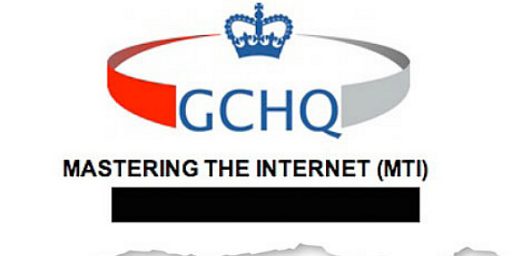Spies Unlike Us
Our natural instincts in hiring are wrong.

In “How to Hire a Spy,” The Economist reviews a new book by Robert Hannigan, the former head of the British signals intelligence agency GCHQ. The key bits:
Humanintelligence agencies like MI6 and the CIA recruit and run human agents and thus rely on influence, persuasion and manipulation. Meanwhile, signals-intelligence (SIGINT) agencies focus on data and communication technology—cables in the 19th century, radio in the first part of the 20th and now the internet. The aim is to understand those systems and to “attack” their weaknesses, as cryptanalysts say.
To do that successfully requires people who think in different, original and unusual ways. Dilly Knox, a professional papyrologist, installed a bath in the Admiralty office during the First World War and allegedly cracked a German naval cipher during a soak (a process Mr Hannigan connects to modern research on the neurological benefits of warm water). The point is not what you know but how you think: after the war Knox tackled Hungarian diplomatic codes without knowing a shred of Hungarian. gchq’s entry exams have included texts in the fictitious Elvish languages spoken in J.R.R. Tolkien’s Middle-earth.
Diversity of thought is often rooted in other sorts of differences. Women excelled as cryptanalysts at Bletchley Park despite making up only a small proportion of pre-war mathematicians. Jewish cryptanalysts played an important role in the Second World War. Mr Hannigan also hints at the pivotal role of Afghan and Muslim staff in GCHQ’s more recent history.
Those with autism tend to have better visual perception, a fact which Israel’s armed forces exploit to interpret fuzzy satellite images. Drawing on research into neurodiversity and autism-spectrum disorders, GCHQ “has actively sought to recruit this kind of diverse workforce”, says Mr Hannigan. Dyslexia (challenges in reading or writing) and dyscalculia (difficulty in understanding numbers) are “prevalent” at GCHQ; Mr Hannigan guesses that one in four of the organisation’s staff has some sort of neurodiverse condition. Such people would not always prosper in traditional job interviews or flourish under the rigid hierarchy of the armed forces or the formality of the civil service.
Ironically, whereas gchq’s best-known figure, Alan Turing, was persecuted by the state for his homosexuality despite his pivotal role in breaking the German Enigma code, the agency later protected many gay people in its ranks, says Mr Hannigan, and “evaded some of the zealotry” that blighted other parts of the cold-war civil service. More recently, GCHQ has begun training vetting officers in DEI in order to decrease the number of ethnic-minority applicants who are refused security clearances—a common problem for people with familial connections to foreign countries.
[…]
The relationship between free thinking, intelligence work and problem-solving more broadly is best illustrated by the wider pursuits of codebreakers. John Manly and Edith Rickert, American cryptanalysts in the First World War, went on to study statistical patterns in poetry. Elizabeth and William Friedman, towering figures in American cryptology, explored—and later debunked—the conspiracy theory that Francis Bacon had secretly written and hidden enciphered text in the plays of Shakespeare. Joan Clarke, briefly Turing’s fiancée, had a long career at GCHQ and became an expert on 15th-century coins. The favoured television programme of staff at gchq is “Only Connect”, a British game show in which contestants must identify the cryptic link between four answers. Like codebreaking, that requires lateral thinking, an open mind and an ability to connect disparate types of knowledge.
It is easy for po-faced culture warriors to dismiss this sort of thing as a distraction from the real work of national security and intelligence. But in fact it cuts to the very heart of good spywork. “Puzzles and play do not constitute a world separate from serious work,” concludes Mr Hannigan. “They form a continuum, and one enables the other.”
The ship has likely sailed but I’ve long that various “diversity” programs would have been more easily sold based on building teams with multiple perspectives rather than in terms of making up for past wrongs. The latter both stigmatizes those hired as tokens and gives those not hired scapegoats.
Additionally, this highlights long-understood but largely ignored-in-practice research into hiring processes. We tend to replicate ourselves or those who look like others on the team because they would be a “good fit.” We reward those who are good at jumping through hoops and playing well with others, as demonstrated by getting into and graduating from elite schools. We screen resumes for those who have taken familiar career paths. And then we have interviews that reward extroversion and the ability to give glib answers on the spot.
Indeed, I know this is problematic and tend to do just this when on hiring committees! This, even though the faculty members at our institution (myself included) who are the best performers mostly don’t fit the pattern. It’s just really card to convince yourselves to hire neurodivergent folks who make awkward impressions in the interview process or those with nonstandard career paths.





This is, of course, true of any jobs, including intelligence work.
And kudos to you, James, for recognizing this.
Just as we’ve seen this week with the Torygraph publisher of the Washington Post hiring two of his buddies because “they were the best for the job.”
There’s been an argument for competence of non-cishet-white-male, neurodivergent folks since the beginning, but the superiority of diverse teams couldn’t be studied until diverse teams existed. There weren’t many until recently. And folks like Matt Lewis “knew” that their hiring practices hired the best people because those people were like them. People arguing for diversity actually had to come up with evidence. So those arguments could only develop over time.
And still we have the publisher of the Washington Post arguing very publicly for the superiority of people exactly like him to run the paper. Yes, there is pushback, but there is still a long way to go.
This is how my large technology employer positioned DEI 15 years ago with new employees – DEI is a strategy, not a compliance exercise.
Our customers are blind, and gay, and hearing impaired, and wheelchair-users, and short, and tall, and from Bhutan, and from Indonesia, and from Mississippi – and we need to make sure our workforce looks like our customers so that we deeply understand their concerns and address them.
That still resonates with me all these years later.
I have mixed feelings about this and dont know how to figure out the timeline. There were actually decent studies going back several years showing that diversifying groups largely lead to better outcomes. Committees in business and medicine that included women performed better than all men or all women. Companies that added minorities into the decision making processes also generally performed better. Not always but often. So, I think the evidence for diversification well preceded DEI efforts and many places were following that paradigm. With my corporation and well before I had heard of DEI we went from all white guys with 2 Hispanics to white males at about 40% of staff.
I think maybe the DEI folks who wanted to push the idea that this would make up for past sins thought it would speed up the process but it doesnt look to me like they much to show for their efforts which mostly just seem to make them feel good. I looked at a lot fo DEI programs considering them for use where I work but none offered much in the way of metrics to show they accomplished anything. The education programs are pretty quickly forgotten and they do breed resentment, even among the people who believe in diversity. I think a lot fo the programs are just scammers or people who mean well but think that since their cause is just it doesnt matter if they cant show results.
Anyway, I think diversity remains important but many if not most of the current programs are misguided and ineffective at best and negative at worst.
https://hbr.org/2016/07/why-diversity-programs-fail
Steve
@steve: I am sensitive to this as well. I was told – flat out – back in 2017, by my boss, that I was not going to get promoted because I’m a CIS white guy and leadership was being bonused based on how many women and (identified) minorities they promoted from within. You get more of whatever you track and reward.
Of course, only certain minorities counted for the statistics – basically black people. We had people from every nation on earth working for us, and people from India and Mexico/South/Central America weren’t getting promoted at all – but the focus was black people and women because those are the statistics that are tracked by some reporting agency somewhere.
The best part? Many fellow managers who were women told me they were concerned they only got the job because of their sex. My advice was to not worry about whether that was true or not, and just go with it because back in the day they would have “not” gotten the job because of their sex.
Once quotas get involved it’s all cynical bullshit.
Only Connect is a brilliant way to find different and interesting intellects. You think you’re smart? Play a few rounds. My daughter and I watch it whenever she visits. It is fiendishly hard. (Might be easier if we weren’t stoned.) It’s hosted by British nerd-crush, Victoria Coren Mitchell,* a former pro poker player and all-purpose witty and sexy TV intellectual. You can find it on YouTube.
Watch the show long enough and you realize that virtually every player is some sort of nerd, weirdo or eccentric. It’s heavily white (It’s filmed in Wales) but pretty good on female and queer representation. There are two teams of three, and we choose as our team whichever has the geekiest players.
It’s actually a brilliant way to find and recruit super-smart, widely-knowledgeable, off-balance thinkers.
* My wife in an alternate timeline.
@Cheryl Rofer: WAPO and Lewis are probably a bad example. Given that his job is to enshitify the paper into a print version of FOX, and that he has to lie about it, he does need to hire people just like himself.
Just to be contrarian — there are a lot of jobs where there is relatively little thinking, and diversity doesn’t help in that respect.
To be contrary to my contrarianism, though, these are a lot of the jobs where minorities end up, because the better jobs are staffed by outgoing white men hiring people like themselves.
Hello from the UK! I’m still traveling for a couple more weeks, but I have some time for an engagement tonight.
The problem described in the piece is not new and is one that is challenging because different priorities are often in conflict:
– The need for creative (lateral) thinkers to solve some of the most difficult contemporary challenges.
– The needs of bureaucracy and technocracy, which favors standardization, box-checking, and hierarchies. Bureaucracies love DEI because it fits that mold and is only concerned with quantifiable diversity that can be tracked on a spreadsheet, which isn’t possible with difficult-to-quantify things like capacity for lateral thinking, which is both rare and is present in all human populations.
– The need for security. Lateral thinkers have more difficulty getting clearances. I don’t have the links with me, but about a decade ago there was a series of news reports on how polygraphs were eliminating otherwise qualified and intelligent people from jobs at the CIA. The gist was that those with more introspection and the ability to question and doubt their own thinking, as well as those who just “think differently,” are more likely to get weeded out during the clearance process, especially with something like polygraphs.
– Many people who would be great intelligence analysts – especially today – do not want to work for the government and, for ideological and other reasons, oppose even considering it.
So, all these factors are constantly in play, and the intelligence function often loses out on the best and brightest. It’s a lot easier to get these people onboard in the context of something like WW2, where service can be compelled and strongly encouraged by social pressure and tribal bonding that existential wars often bring. Not to mention, bureaucracies can become more flexible in times of crisis, and the balance of security vs. getting the right people often shifts. But in normal times, the bureaucracy usually is ascendent.
We have long known large systems atrophy and die when they turn inward rather than strategically integrate new players. We see this play out across disciplines; the problems associated with genetic inbreeding are not new.
So it is self-evident that in large institutions, increased integration and diversity is usually good. The resistance to it is and will always be a self-own.
But many Americans would rather buy into childish fearmongering about DEI and woke and CRT than win.
Andy’s post reminded me that in deciding who goes to medical school there was an active effort to include people who weren’t essentially STEM majors. They still needed to have some basic science and math courses and do OK on their MCAT, but it was OK if they were an English or history major. I hired several of those folks over the years and by and large they performed well and did bring a different perspective. So it was lateral thinking not just based upon sex or race or religion.
Steve
@steve:
I’ve seen similar things in the intelligence world. The guy who taught me air defense analysis was a Harvard Divinity School graduate, for example and a brilliant analyst.
@Michael Reynolds: Have you watched Taskmaster? Pretty every episode can be found on their official YouTube channel. There’s a ton of overlap between their casting and the casting of shows like Would I Lie to You? and 8 out of 10 Cats (does Countdown).
@steve:
I do wish that was the norm. When I was a TA at Cornell, I taught a lot of pre-med students and dear God those kids were so tightly wound–the worst I ever encountered.
I understand the structural reasons why, but I also can’t imagine that is good for either them or the profession writ large.
@mattbernius:
You should have seen Johns Hopkins, at least back in the day. About a third of the undergrad class were pre-med, and the competition was… unhealthy.
@Gromitt Gunn:
Dude. Taskmaster is a religion in my house. But I am forbidden to watch this latest season until my daughter is with us. And she may be delayed by possibly finding true love, which is damned inconvenient. Alex Horne is a genius.
As for WILTY: every episode at least three times. Haven’t watched Cats Down since Sean Lock died. It takes me a beat to get over.
@Michael Reynolds: I am new to Taskmaster (only watched 1 – 5 so far, starting 6 soon). My mom and I watch an episode or two of WILTY every evening on BritBox – it is such a fun way to end the day.